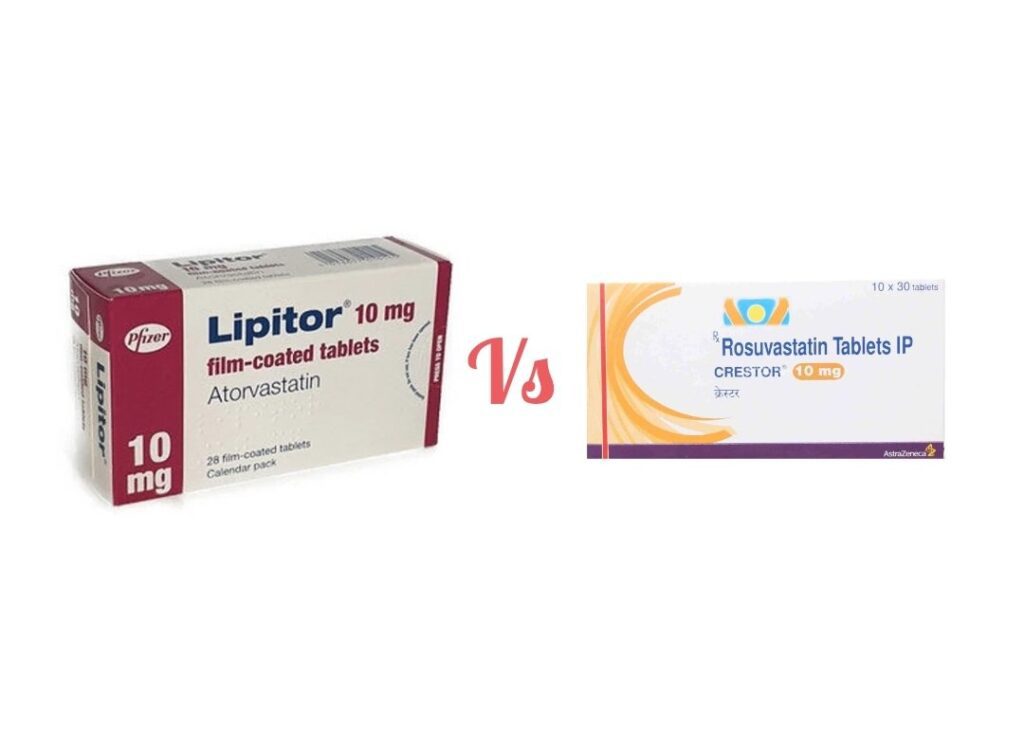
In today’s fast-paced world, maintaining good health is paramount. With the prevalence of conditions like high cholesterol, people often turn to medications to manage their health effectively. Two popular options for controlling cholesterol levels are Lipitor and Crestor. This article delves into a comprehensive comparison of Lipitor vs. Crestor, exploring their similarities, differences, effectiveness, side effects, and more.
Understanding Cholesterol and Its Impact
Cholesterol is a fatty substance found in the blood that plays a crucial role in various bodily functions. However, high levels of cholesterol can lead to a buildup of plaque in arteries, increasing the risk of heart disease. Medications like Lipitor and Crestor belong to a class called statins, which work to lower cholesterol levels and mitigate these risks.
Similarities between Lipitor and Crestor
Both Lipitor and Crestor are widely prescribed statin medications with a shared goal of reducing cholesterol levels. They work by inhibiting an enzyme in the liver responsible for producing cholesterol. This reduction in cholesterol production leads to lower overall levels in the bloodstream, subsequently decreasing the risk of heart-related complications.
Differences in Effectiveness
While both medications are effective in lowering cholesterol, studies have shown some variations. Crestor, chemically known as rosuvastatin, has been reported to potentially lower LDL (low-density lipoprotein) cholesterol more effectively than Lipitor (atorvastatin) at certain doses. However, individual responses to these medications can vary, and a healthcare professional’s guidance is crucial in determining the most suitable option.
Dosage and Administration
Lipitor and Crestor are available in various doses to accommodate different individuals’ needs. The prescribed dosage depends on factors such as the patient’s cholesterol levels, medical history, and response to the medication. Doctors carefully assess these factors to determine the appropriate starting dose and monitor any necessary adjustments over time.
Safety and Side Effects
As with any medication, Lipitor and Crestor come with potential side effects. Common side effects shared by both medications include muscle aches, digestive issues, and an increased risk of diabetes. However, serious side effects such as liver problems and muscle breakdown (rhabdomyolysis) are rare but require immediate medical attention. It’s crucial for patients to communicate any unusual symptoms to their healthcare provider promptly.
Cost Considerations
Cost can be a significant factor when choosing between Lipitor and Crestor. Generic versions of atorvastatin (generic Lipitor) are often more affordable than rosuvastatin (Crestor). Insurance coverage and out-of-pocket expenses can also influence the decision-making process. Patients are encouraged to discuss these financial aspects with their healthcare provider to make an informed choice.
Lifestyle Factors and Holistic Approaches
While medications play a vital role in managing cholesterol, lifestyle modifications cannot be overlooked. A balanced diet, regular exercise, stress management, and avoiding tobacco are essential components of maintaining heart health. Combining these practices with prescribed medications can enhance their effectiveness and contribute to an overall healthier lifestyle.
In the debate of Lipitor vs. Crestor, both medications have proven track records in effectively lowering cholesterol levels and reducing the risk of heart disease. The choice between them should be based on an individual’s medical history, response to treatment, potential side effects, and financial considerations. Ultimately, consulting a healthcare professional is crucial to determine the most suitable medication and treatment plan. It’s important to remember that while medications are valuable tools, they are most effective when complemented by a holistic approach to health and well-being.